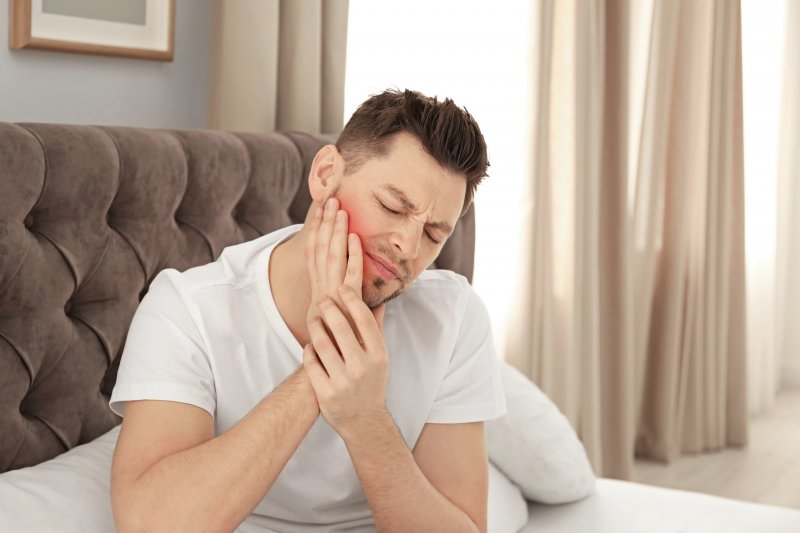
If you often experience facial soreness or occasionally have trouble opening and closing your mouth, you might have a problem with the TMJ (temporomandibular joint) that connects your lower jaw to the rest of your skull. A TMJ disorder can occur for any number of reasons, but you might be surprised to learn that in many cases, it’s connected to a sleep disorder. The following post explores the often-overlooked connection between TMJ and sleep apnea.
What Exactly are TMJ Disorder and Sleep Apnea?
A TMJ disorder is characterized by pain and dysfunction in your jaw joint and the muscles around it. The exact cause isn’t always clear, but common risk factors include arthritis, jaw injuries, chronic grinding or clenching of the teeth, and certain connective tissue diseases. While the condition often starts mild, over time the pain can become debilitating.
Sleep apnea, meanwhile, is a condition where your breathing is repeatedly interrupted while you’re asleep. This usually happens because the airway has been blocked by relaxed muscles in the back of your throat. Whenever your breathing stops, your body briefly wakes you up to restart the flow of air. As a result, the quality of your sleep will suffer, and you may feel exhausted during the day. Over time, sleep apnea can lead to high blood pressure and other dangerous health problems.
How are TMJ Disorder and Sleep Apnea Connected?
Studies have shown that about 43% of patients with TMJ disorder also have sleeping problems, which often means sleep apnea. One reason for this is the body’s response to a sleep apnea episode. When breathing stops, the lower jaw is pushed forward in an attempt to open up the airway. As a result, the jaw is constantly being moved throughout the night, which puts excessive stress and tension on the jaw joints – thus resulting in a TMJ disorder.
How Can You Treat TMJ Disorder and Sleep Apnea?
In many cases, TMJ disorder and sleep apnea can have the same solution: oral appliance therapy. This involves wearing a customized oral device that repositions the lower jaw. This helps keep the airway open and makes it less likely that you’ll suffer from a sleep apnea episode. Furthermore, the oral appliance can also help relieve some of the pressure on your TMJ, giving it a chance to rest and recover.
Your sleep dentist might suggest taking additional steps to address sleep apnea and TMJ disorder. For example, stress is a common contributing factor for both conditions. You might try yoga or other stress-relieving activities to see if it has any impact on your symptoms.
Both TMJ disorder and sleep apnea can both have very serious consequences if they aren’t treated properly. Don’t lose any time in seeking professional care if you’re suffering from either of these conditions.
About the Author
Dr. Keane Fedosky has been practicing dentistry for over 20 years; he is currently a member of the American Academy of Dental Sleep Medicine as well as the Texas Dental Association. At Sleep Rehab Snoring, Sleep Apnea and TMJ in Plano, he offers solutions for patients suffering from jaw pain and sleep disorders. To schedule a consultation with Dr. Fedosky, visit his website or call (972) 753-3737.
